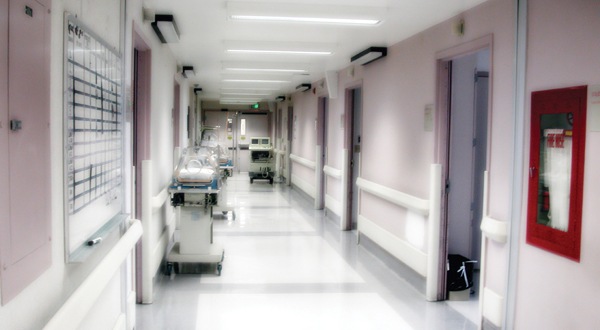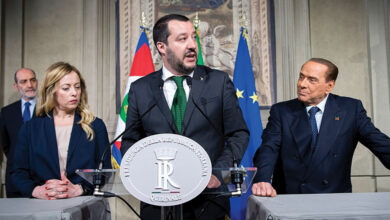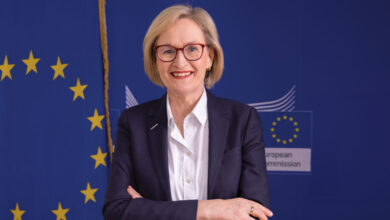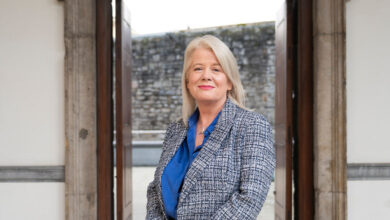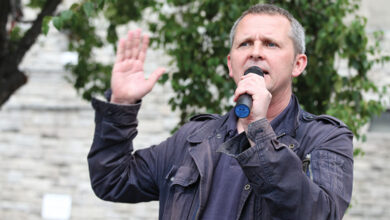Joint Committee on Health and Children
Scrutinising health brings a heavy workload and the committee is keen to see the sector reported fairly.
Health is rarely out of the headlines but the Chairman of its Oireachtas committee thinks that the full story is often not told.
“Something I would certainly be very conscious of is the fact that the press around health tends to focus predominately on the problems,” Seán Ó Fearghail remarks. “Motivating that organisation [the HSE] and keeping the morale of the health professionals high is quite difficult against the background of continuous negative publicity.”
A Fianna Fáil TD for Kildare South and former county councillor, Ó Fearghail is a farmer by background. His interest in health policy developed when he sat on the old Eastern Health Board and, subsequently, the Eastern Regional Health Authority and the South-Western Area Health Board.
He was elected as chairman on 27 June 2008, succeeding John Moloney on his appointment as Minister of State. The committee, Ó Fearghail explains, has several purposes. Firstly, it processes legislation coming from the Dáil and Seanad, which is “a valuable opportunity to tease out the detail of Bills.”
The second major purpose, which has developed more recently, is allowing the views of lobby and interest groups in the health sector “to put issues or concerns on the political agenda and into the public arena”. The committee, in turn, can take up an issue and lobby the Health Minister or the HSE.
Responding to these groups takes up a “substantial” amount of time but he is impressed with their work. One of the main challenges is making sure that the committee does not set unrealistic expectations.
“It’s understandable that if groups come before any Oireachtas committee and make a presentation and are well-received in the presentation, that they would expect that to come to fruition in some way or another,” he comments. “But as we well know, the wheels of government move quite slowly and change can be quite difficult to effect.”
Specific cases raised by the committee in recent times have included calls for the current level of community support services to be maintained, from the Alzheimer Society of Ireland, financial support for the Jack and Jill Children’s Foundation for severely disabled children, reduced waiting times for medical cards, the health and well-being of Travellers, and that of post-polio syndrome sufferers.
Minister Harney and the HSE Chief Executive, presently Cathal Magee, exchange views with committee members at quarterly meetings.
Unlike other committees, it has little contact with the relevant government department. It tends to engage directly with the Minister, her three ministers of state and the HSE.
The committee finds the HSE “helpful, responsive and co-operative” when replying to its requests for information but individual TDs are frustrated at delays in responses to parliamentary questions.
In October, the committee set up a sub-committee on children, its main focus being child protection. This group’s work will follow on from the Murphy and Ryan reports, assessing what has and what has not been done on their recommendations.
Two reports have been produced since the 2007 election. The first, on the high level of suicide in Irish society, was published in June 2009, and this remains a “massive problem”.
Secondly, the committee considered primary medical care in the community, publishing its recommendations on that subject in February. These included a ‘follow-the-patient’ system where funding is directed to primary care, given its increasing importance for treating patients.
Primary care teams also worked best from one location, the report stated. A variety of tax reliefs was proposed, to encourage the development of single facilities.
It also wanted radiology, ultrasound and cardiac diagnostics made available at primary care centres so patients did not need to go to hospital for those procedures. The report received unanimous political support within the committee.
“We accept that the HSE have done a lot to establish the primary care teams across the country. We would feel that in order to have real effect, the establishment of teams is not sufficient because the level of engagement and the level of activity within a team may vary from place to place.”
Members were especially concerned about private health providers moving in and taking the place of GP services: “The corporatisation of primary care should be avoided and resisted,” Ó Fearghail states.
Asked if a UK-style national health service could take shape in Ireland, Ó Fearghail could not see this happening “until we surmount our economic difficulties” due to the huge expense that would be involved.
He does want to see universal access in primary care centres, which would involve bringing in private service providers. The maximum number of health professionals in an area should be located in one centre and a medical card holder “should not be disadvantaged vis-à-vis the person who comes off the street who can pay.”
Recalling his nomination by the Taoiseach, he was “quite surprised” to be put forward.
“I have learnt an enormous amount and I have been overwhelmed by the energy and enthusiasm of people working in the voluntary sector,” he comments. Turning to the HSE, Ó Fearghail also comments how he has seen “huge progress” under the leadership of Brendan Drumm. There were “major communication problems” but, in the chair’s view, much was achieved despite the public image of an organisation that was “not achieving anything at all.”
Six members have had careers in health or working with children: two in medicine (Rory O’Hanlon and James Reilly), two teachers (Jan O’Sullivan and Margaret Conlon), one nurse and midwife (Phil Prendergast) and one social worker (Frances Fitzgerald). On related notes, Denis Naughten is former research scientist in food microbiology and Charlie O’Connor was a press officer for the National Youth Federation.

